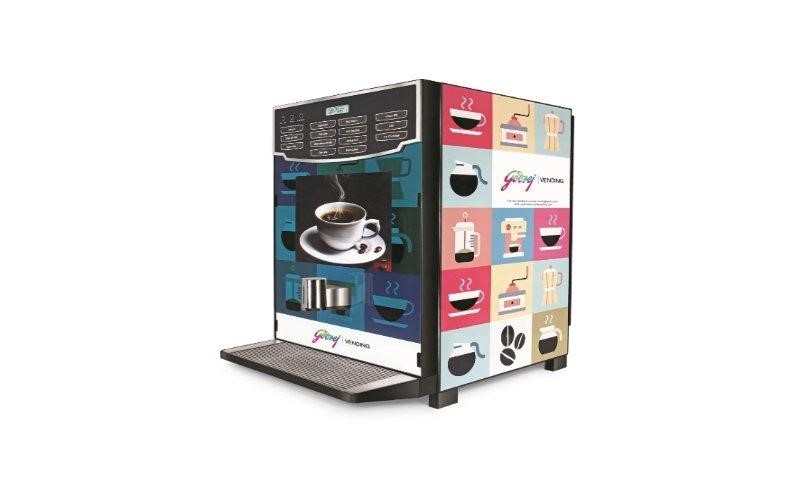Hidden Costs of Vending Machines: What to Consider in India

Vending machines are undoubtedly a popular choice for convenience and quick beverages snacks. They are seen and used all around India and dispense a wide range of products, from chips and soft drinks to instant noodles and chocolates. While these machines provide instant gratification, there are hidden costs that consumers and business owners need to be aware of. This article delves into the unseen expenditures impacting vending machine prices in India.
1. Initial Investment and Installation Costs
Setting up a vending machine business in India requires a significant initial investment. The cost of purchasing the machines can vary depending on the size, type, and features. Additionally, there are installation costs to consider, such as renting a space, obtaining necessary permits and ensuring the machines are securely placed.
Before investing, it is essential to conduct thorough research and consider the target market. Understanding the demand for specific products in the location where the tea coffee vending machine will be placed can help determine the potential return on investment. Considering the maintenance and repair costs associated with the machines is crucial to ensuring they remain in optimal working condition.
2. Maintenance and Repair Expenses
Like all other mechanical devices, vending machines require regular maintenance and occasional repairs. This includes routine cleaning, restocking, and addressing any technical issues that may arise. These maintenance tasks must be revised to ensure a higher level of machine performance, resulting in dissatisfied customers and potential revenue loss.
Maintaining a tea-coffee vending machine business involves keeping the machines in working order and stocked with fresh products. This requires a dedicated effort to monitor inventory levels, rotate stock, and ensure that expired or damaged items are promptly removed. All these factors contribute to the overall maintenance and repair expenses, which are factors to consider when planning a vending machine business.
3. Stocking and Replenishment Costs
Stocking and replenishing vending machines can be an ongoing expense that should be considered. Depending on the popularity of certain items, the frequency of restocking may vary. It is essential to analyse sales data and consumer preferences to determine the optimal quantities to stock in each machine to avoid overstocking or running out of stock.
Additionally, sourcing products for vending machines comes with its own set of costs. Business owners need to consider the wholesale prices of the products, transportation fees, and any applicable taxes or duties.
Negotiating favourable deals with suppliers and establishing a streamlined supply chain can help minimise these costs and ensure a steady flow of products to meet consumer demand, given the expense already incurred by the buyer in paying the supplier a considerable amount as vending machine price in India.
4. Electricity Consumption and Utility Bills
Vending machines rely on electricity to operate, which can contribute significantly to their hidden costs. The energy consumption of vending machines varies depending on factors such as size, type, and features. It is crucial to consider the electricity rates in the location chosen for installing the machines to estimate the ongoing utility expenses accurately.
To minimise electricity consumption, business owners can opt for energy-efficient vending machines and implement innovative strategies, such as adjusting the temperature settings and powering down the machines during non-peak hours. By monitoring and optimising energy usage, it is possible to reduce utility bills and increase the overall profitability of the vending machine business.
5. Security and Insurance Costs
Ensuring the security of vending machines is crucial to protecting both the machines and the products inside. Installing security measures such as surveillance cameras, alarms, and locks can help deter theft and vandalism. These security measures come with their costs, including the initial installation and ongoing maintenance expenses.
The right insurance coverage is essential to protect against losses caused by theft, damage, or accidents. Business owners should consult insurance providers to determine the appropriate coverage and associated premiums for their vending machine business. Considering these security and insurance costs is crucial to safeguarding the investment and minimising financial risks.
6. Compliance and Licensing Fees
Operating a vending machine business in India requires compliance with specific regulations and obtaining the necessary licenses and permits. These compliance requirements may vary depending on the state and city where the machines are located. Failure to meet these legal obligations can result in penalties and legal consequences.
Business owners must allocate funds for compliance-related expenses, such as obtaining licenses, renewing permits, and conducting regular inspections. It is essential to consult with local authorities and legal experts to ensure full compliance with all applicable regulations. By proactively addressing these compliance and licensing fees, business owners can avoid potential disruptions to their operations and maintain good standing within the industry.
Conclusion
While vending machines offer a convenient solution for consumers and a profitable business opportunity for entrepreneurs, it is crucial to consider their hidden costs. From the initial investment and installation costs to maintenance, repairs, stocking, electricity consumption, security, insurance, and compliance fees, these expenses can significantly impact the profitability of a vending machine business.
Conducting thorough research is essential before diving into the world of tea coffee vending machines in India. Ensure you create a comprehensive business plan and factor in all the hidden costs. By doing so, business owners can make informed decisions, minimise the vending machine price in India, maximise profitability, and provide a seamless experience for consumers. Whether you are a consumer who frequently uses vending machines or a business owner planning to venture into this industry, understanding these hidden costs is vital for long-term success.
(Devdiscourse's journalists were not involved in the production of this article. The facts and opinions appearing in the article do not reflect the views of Devdiscourse and Devdiscourse does not claim any responsibility for the same.)










